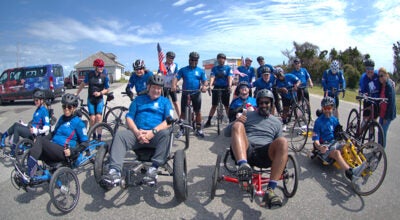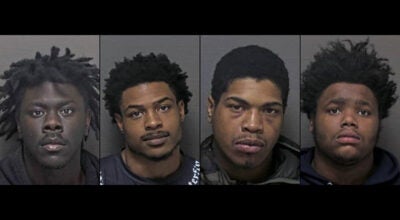North Carolina governor vetoes latest voter ID legislation
Published 5:24 am Monday, December 17, 2018
By GARY D. ROBERTSON, Associated Press
RALEIGH (AP) — Democratic Gov. Roy Cooper on Friday vetoed legislation implementing a voter photo identification mandate that was added to the state’s constitution in a recent referendum, teeing up a likely veto override by Republican lawmakers.
Cooper has repeatedly opposed voter ID legislation over the years, saying it was unnecessary and would prevent many poor and minority citizens from exercising their right to cast ballots. He vetoed the measure even though more than 55 percent of voters approved a constitutional amendment last month requiring in-person voter photo ID.
“Requiring photo IDs for in-person voting is a solution in search of a problem,” Cooper said in a statement.
“Instead, the real election problem is votes harvested illegally through absentee ballots, which this proposal fails to fix,” he said, referencing an investigation of alleged absentee ballot fraud in the state’s 9th Congressional District in November’s election.
He added that the bill’s fundamental flaw was a “sinister and cynical” attempt to suppress the voting rights of minorities, the poor, and the elderly.
Republican leaders in the GOP-dominated General Assembly vowed late Friday to override, a move that some observers expect will lead to litigation.
The GOP holds veto-proof majorities in both the House and Senate, so an override would occur if Republican lawmakers remain largely united. Votes could occur next week. Republicans are acting now because they won’t have supermajorities starting in January after Democratic legislative gains on Election Day.
“Despite the governor’s personal feelings on voter ID, the fact remains that the constitutional amendment passed with a broad mandate from North Carolinians,” GOP Senate leader Phil Berger said in a release, calling Cooper’s arguments a “tired rehash of unconvincing talking points rejected by the voters.”
Democratic legislators acknowledge that voter ID rules are necessary because of the referendum, but they say the details are being rushed, are complex and will prevent some minorities and poor people from voting. The bill greatly expands the number of qualifying IDs and exceptions compared to legislation blocked earlier this decade. Republicans say the changes will ensure that everyone lawfully registered to vote can cast a ballot.
Permitted IDs would include traditional driver’s licenses and military identification, student IDs from colleges and universities, and employee ID cards for state and local governments. Those IDs must meet certain security thresholds.
There also would be a new, free, photo voter identification card produced by county election boards. People having trouble obtaining an ID could fill out forms at the polling site, and their ballots likely would be counted, too.
Federal judges struck down a 2013 state law that included photo ID and other voting restrictions, ruling they were approved with intentional racial discrimination in mind. Republicans strongly disagreed and put a constitutional amendment on the November ballot to give them more legal and popular standing to require voter ID.
Despite data showing that voter impersonation is rare, Republicans in North Carolina and across the country have pressed for voter ID in recent years, saying it would build public confidence in election results.
A late addition to the measure directs state election officials to figure out how people requesting mail-in absentee ballots could provide proof of identity. The provision is largely a response to an investigation of alleged absentee ballot fraud in the 9th District. The 9th District election results, in which Republican Mark Harris leads Democrat Dan McCready by 905 votes, have not been finalized while election investigators collect evidence for a hearing later this month.
RELATED ARTICLE:
Governor Cooper vetoes voter ID bill





